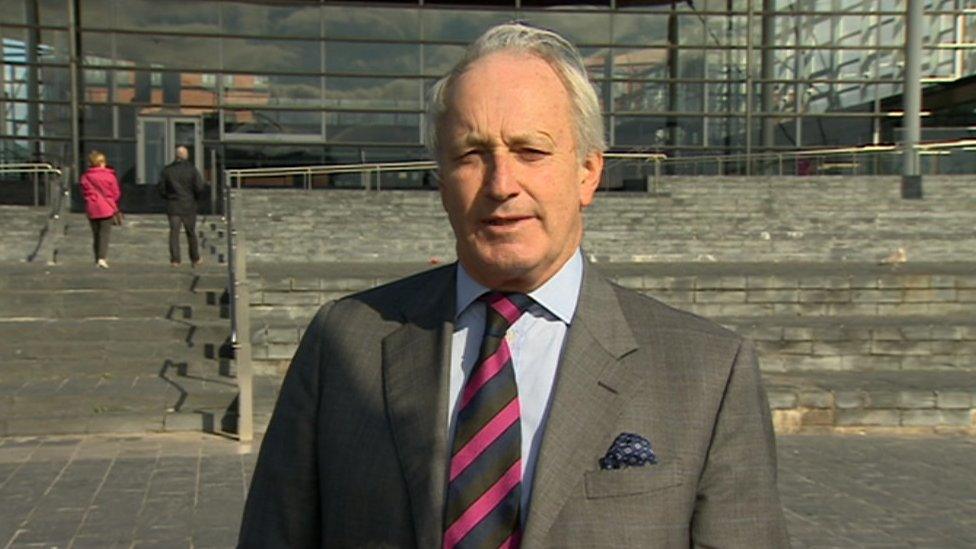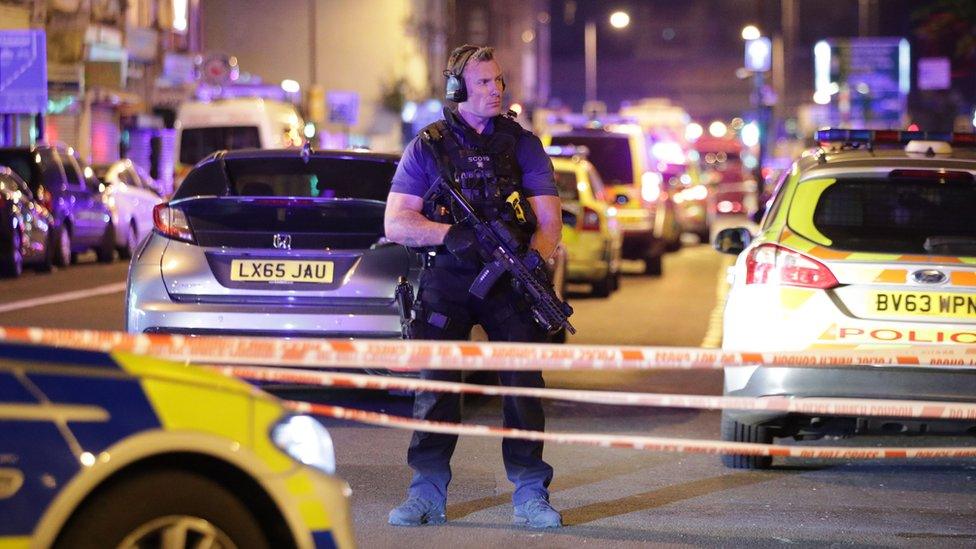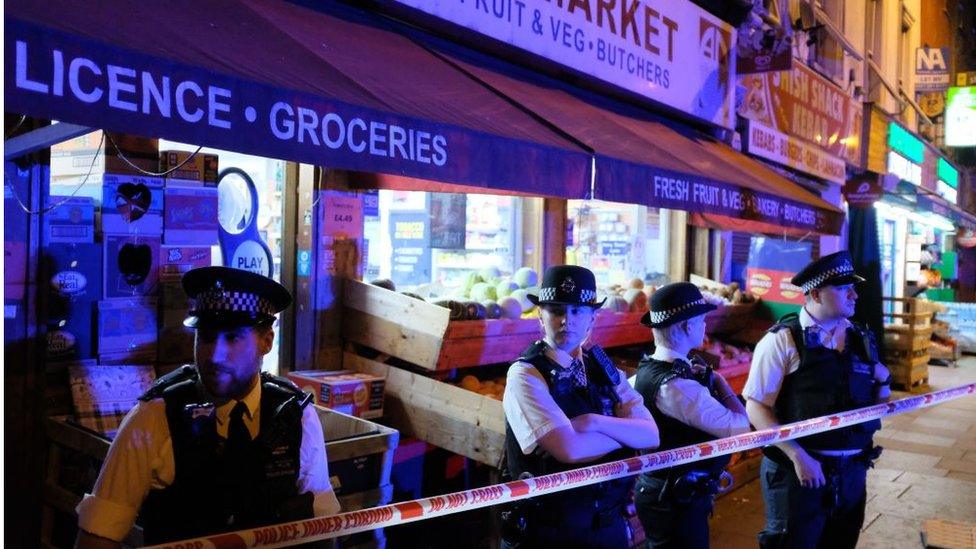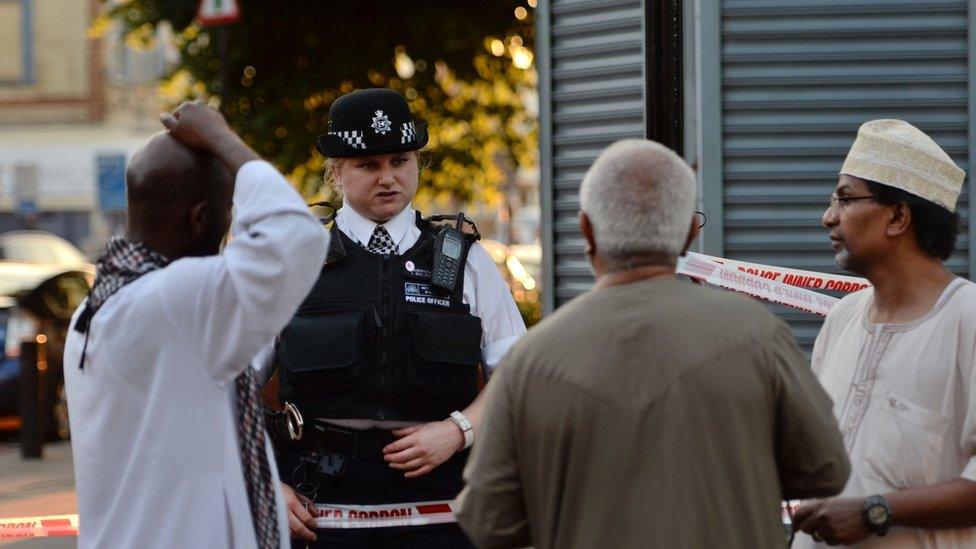No British problem with Islamophobia says UKIP's Hamilton
- Published

Britain does not have a problem with Islamophobia and there are no reliable statistics on hate crime, UKIP assembly group leader Neil Hamilton has said.
Mr Hamilton said the majority of British people are "tolerant and welcoming".
His comments come after the Finsbury Park terror attack in London.
BBC Wales understands that the man suspected to have driven a van into Muslim worshippers on Monday is from Cardiff.
Mr Hamilton also suggested that "firm control" of immigration would "at least" alleviate problems of fundamentalist terrorism.
In February it was reported that all police forces in Wales saw hate crime rise in the first full three months following the EU referendum.
Greater Manchester Police said there was a significant rise in hate crimes after a terror attack in the city in May.
Asked if Britain has a problem with Islamophobia, Mr Hamilton told a press conference: "No I don't, actually.
"The overwhelming majority of the British people are tolerant and welcoming.
"Inevitably there is a minority that is prepared to resort to violence and abuse. That's not acceptable."
He added: "There are no reliable statistics on hate crime for example."
Mr Hamilton added: "There isn't a general problem with Islamophobia in the United Kingdom or Wales".

An armed police officer at the scene of the Finsbury Park mosque attack, which occured in the early hours of Monday morning
Mr Hamilton opened the press conference by talking about a Senedd debate on immigration, to be held by the party on Wednesday.
The debate calls for a "controlled and fair immigration system".
"For the last few years we've been adding a city the size of Cardiff to the population of the UK every single year," he said.
"That's undoubtedly had an impact upon the provision of public services in different parts of the UK".
Asked how to ensure rhetoric on immigration does not divide communities, Mr Hamilton said: "We've seen now the results of years of ignoring the problem, deliberately suppressing discussion of the issue."
"There are massive difficulties the country now faces as a result of this uncontrolled inflow," he said.
'Composite problem'
"The case of Salman Abedi is a case in point," Mr Hamilton said, referring to the perpetrator of the recent attack in Manchester. "They came from Libya in 2008. We now know that family was known to have connections with Islamic fundamentalist groups in Libya.
"No system of immigration control is full-proof," he said.
But he added: "We have to get our border control system fit for purpose and we have to be more alert to the need to scrutinise the background of those who are coming here."
"This is a composite problem, which goes way beyond the immigration problem", he said.
"A firm control of immigration and in particular a proper appraisal of asylum seekers qualifications is an essential part - it will not solve the problem completely no doubt - but at least alleviating the problems of fundamentalist terrorism."
- Published15 February 2017

- Published19 June 2017

- Published19 June 2017

- Published20 June 2017

- Published19 June 2017

- Published15 February 2017
